Paul Thomas Anderson’s newest odyssey gives us something radical: Black women who own their chaos, pleasure and power.
In Paul Thomas Anderson’s latest 70-millimeter masterpiece One Battle After Another, a Black revolutionary who goes by Perfidia Beverly Hills (Teyana Taylor) asks the latest anarchist to join her rebel band of anti-fascists an offhand question: “You like Black girls?”
Bob Ferguson, aka Ghetto Bob (Leonardo DiCaprio), replies, “Of course I do.”
They swap spit, and the rest is history.
Throughout the film’s two-hour, 41-minute runtime, Perfidia and Bob turn themselves on by inflicting mayhem across the fictional border city of Baktan Cross. It’s almost as if Queen ditched Slim and found herself a sloppily dressed, clumsier Clyde.
The romantic misfits are joined by Lady Champagne (Regina Hall), Junglepussy (Junglepussy, the American rapper and actor), Laredo (Wood Harris), Mae West (Licorice Pizza star Alana Haim), Billy Goat (Paul Grimstad) and Dijon (Talleyrand). Together the ensemble cast makes up the French 75, a Weathermen-inspired movement that declares war on the U.S. government and gets off on every bomb they set off.
In this political fairy tale, we get to watch the bandidos free immigrant families from cages, blow up government buildings, rob banks and drive cars in ways cinefiles haven’t enjoyed since Baby Driver (2017), if not Bullitt (1968). We also get to laugh as Perfidia turns a Nazi Gestapo wannabe (Sean Penn’s Colonel Steve Lockjaw) into her pathetic sex puppet. Then we get to swoon after Perfidia has a baby and DiCaprio plays the bumbling middle-aged doting dad to their spunky daughter, Willa (Chase Infiniti).
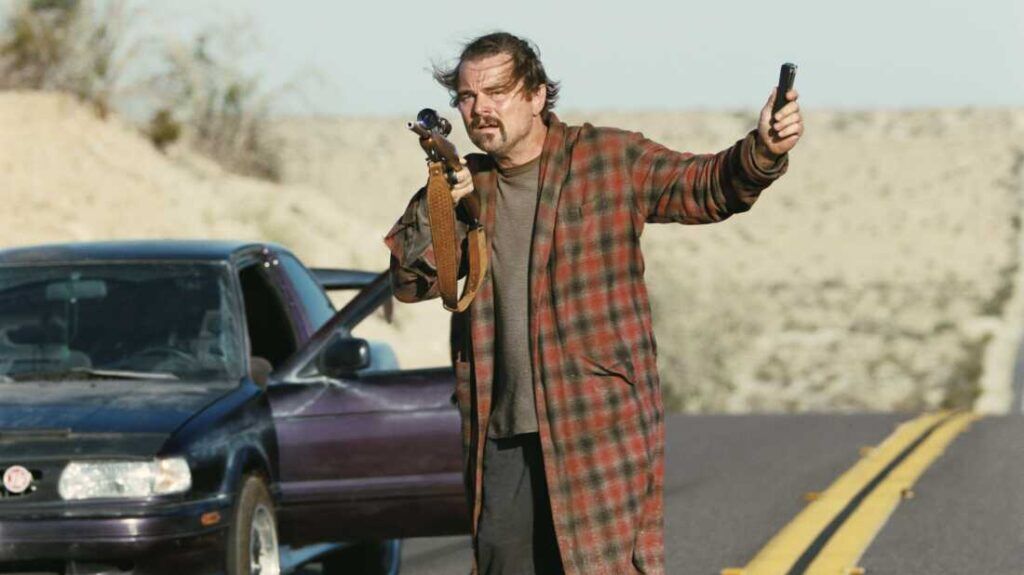
Like most PTA classics, this film’s heroes are anything but angels. There is enough betrayal, incompetence and political incorrectness to go around—which makes it all the more fun to watch them try, fail and try again to take down the American war machine. Even Lockjaw, a racist who is desperate to join the Mar-a-Lago-adjacent Christmas Adventurer’s Club, is more nuanced and sad than he has any right to be.
Plenty has already been written about all the ways in which One Battle holds a mirror up to 2025 America, exposing our inexorable slide from democracy into autocracy. Articles have also been penned exploring the film’s heartfelt father-daughter adventure story.
But it wasn’t a homerun for everyone.
The Haters
Some critics have accused Paul Thomas Anderson—who is as white as the milkshake Daniel Dayview drinks up in There Will Be Blood—of writing Black women who are too sexualized, stereotypical or sidelined.
While I respect all of these critics, I had an entirely different experience in my local theater. I think PTA complicates, expands and enriches the stereotypes we as Black women have been subjected to since the dawn of cinema.
I don’t believe the credit for these powerhouse roles lie with the auteur alone. PTA’s work is informed by his equally talented biracial wife (Maya Rudolph) and their four children. Recent interviews also reveal that actors were often encouraged to go off script in order to add more authenticity to their roles. So it’s likely that many of the shades of gray used to paint these Black women as imperfect yet inspiring insurgents are derived from the Black women with whom PTA collaborates and cohabitates.
For me, the results defied history with humor and humanity. I liked it a lot.
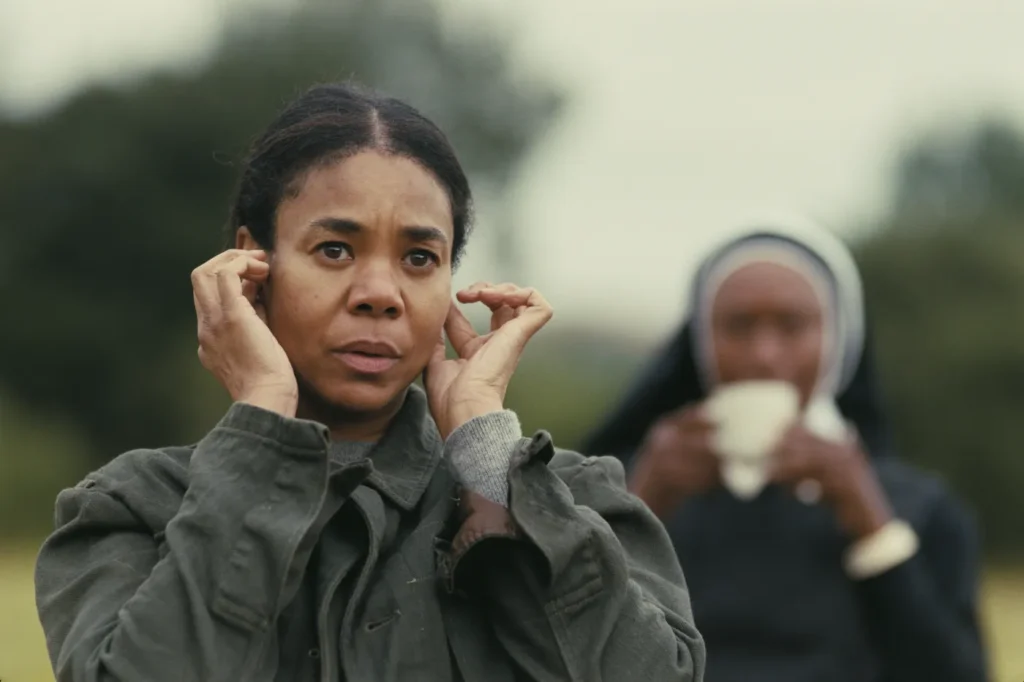
Birth of an Anti-Mammy
Take the silent era’s first blockbuster hit: Birth of a Nation (1915). Birth’s audiences were treated to some of cinema’s first extreme wide shots, parallel editing, giant casts, battle scenes and truly unforgettable costumes. (The white sheets the KKK wear to this day were inspired by the movie.)
They were also treated to unbridled white supremacy, depicting the good guys as Klansmen and the bad guys as blackface monsters who stumble out of forests to ravage white women.
The blackfaced women represent the “Mammy”—full-figured, asexual, dark-skinned servants who protect her white masters at all costs against the threat of Black brutes. One Battle After Another’s commitment to showing Black women as sexy and explicitly anti-racist is a middle finger to Hollywood’s first depictions of my people. I found it exhilarating.
“This is what Black power looks like,” Junglepussy yells, gun in hand as she clicks across a bankteller’s counter in kinky boots.
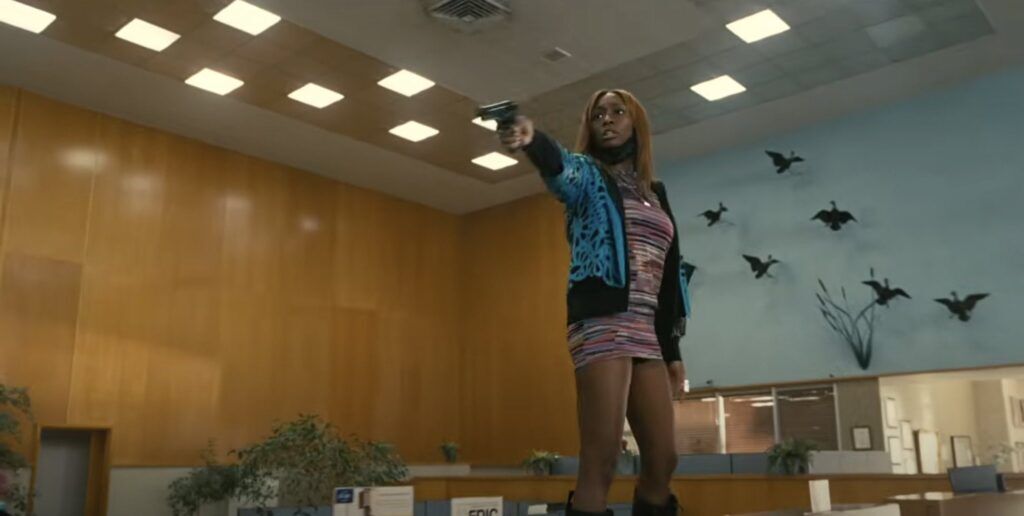
Likewise, Perfidia ain’t here to serve nobody but herself. “I put me first, and that scares you,” she tells Bob.
Both women’s command over their own sexuality paired with a radical commitment to do whatever the fuck they desire could only be described as “Anti-Mammy.”
Of course, some saw the Anti-Mammies as Jezebels.
Jezebel Spells
The “Jezebel” is typically a light-skinned woman who seduces men with her insatiable desire for sex. Similar to the Black Brute, they just got to have it, and they’ll break all of society’s taboos to get it. These depictions excused and explained centuries of white men sexually assaulting Black women, and the mixed-race byproducts of that systemic rape.
It wasn’t white men using their privilege to coerce and force sex upon Black women they found attractive. Oh no. The white men in power were victims who fell under the Jezebel spell.
PTA seems to be perfectly aware of this misogynist and racist trope. When Colonel Lockjaw refers to his sexual relationship with Perfidia as “reverse rape,” I wasn’t the only one in the theater who cackled out loud at the absurdity of framing Perfidia as a “semen demon.” Lockjaw’s crazed sexual obsession with Perfidia makes the entire notion that such a Jezebel ever existed utterly ridiculous.
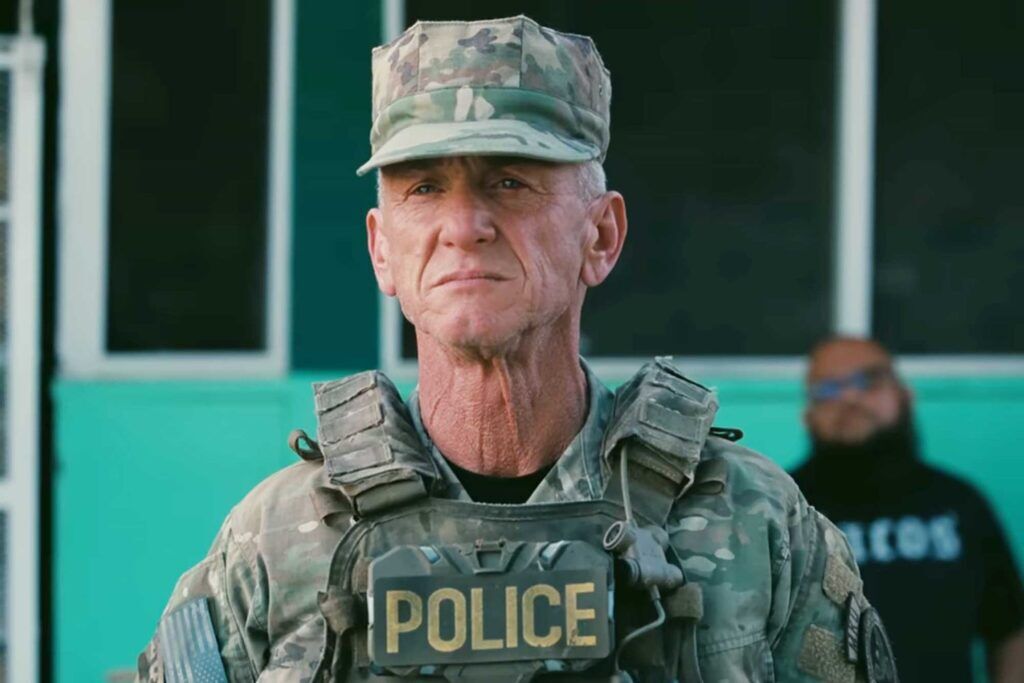
To put a point on it, Perfidia tells Lockjaw: “This pussy don’t pop for you!”
Some critics point out that lines like this showcase another failure in which the white male screenwriter thinks all Black women sound like Cardi B. However, these words do not originate with PTA. They come straight out of the real life Junglepussy’s song “Pop for You.” It’s an Easter egg for the co-star’s fans. They’re having fun with us. But the joke is on the authoritarian white man who thought he could get it—not us.
One Battle After Another’s commitment to showing Black women as sexy and explicitly anti-racist is a middle finger to Hollywood’s first depictions of my people.
Victim or Vixen?
While some argue that Perdifia is objectivized and fetishized, I found the character to be in control at all times. Lockjaw thinks his badge gives him power over her, but she never shows fear, nor is she trapped. When she wants to get away from him, she slides under his arm and struts off without giving him a damn thing. When she wants her get-out-of-jail-free card for murdering a Black man (of all people) in cold blood, she plays ball by playing with the colonel’s … well, you know. It’s off screen in any case.
What the film does show is Perfidia as a leader who knows her beauty and her power, who uses both as she pleases. The male gaze that trains the camera’s lens on her breasts and bonita apple bum are not from PTA’s perspective. She is only seen this way through Lockjaw’s binoculars. During the scene, PTA’s wider, more objective view clearly shows Perfidia commanding officers to their knees at gunpoint. It’s more badass than ass.
She’s not a Jezebel who forces Lockjaw to stalk her, and she refuses to play the “Victim”—another one of the popular media’s favorite roles for Black people.
It’s almost as if Queen ditched Slim and found herself a sloppily dressed, clumsier Clyde.
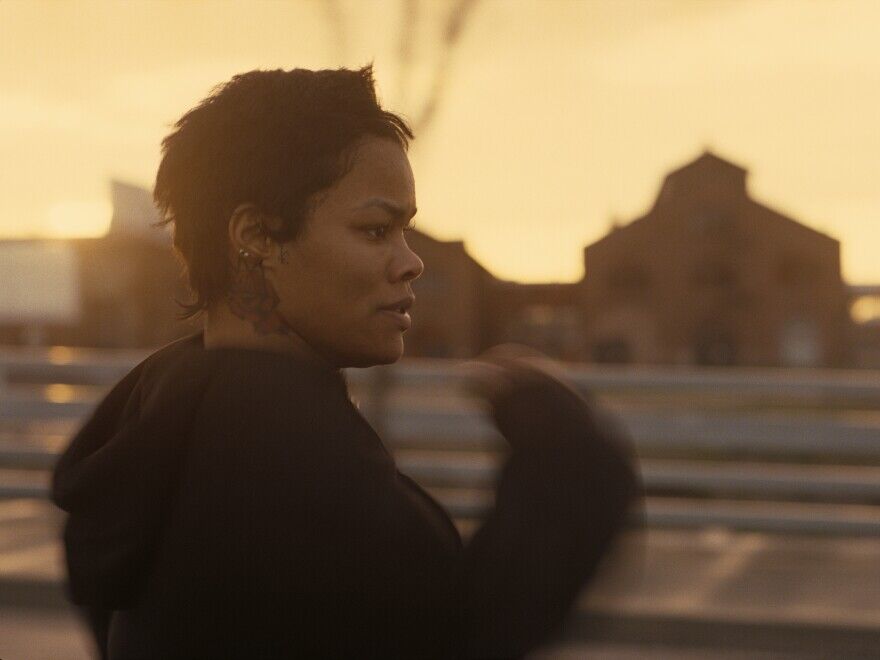
The “Victim” is one of the least discussed Black archetypes, yet depictions of Black folks as perpetrators or victims of violence are abundant.
At the turn of the 20th century, I would argue that forcing audiences to face Black victimhood was a good thing. Some of Hollywood’s first Black directors centered Black Victims of white terror, because the truth of our lynchings, exploitation and discrimination were so thoroughly ignored.
Oscar Micheaux’s Within Our Gates (1920), for instance, is a direct response to Griffith’s racist fantasy of Klansmen rescuing white families from Black brutality. Instead of Black monsters chasing white debutantes off of cliffs—something that never happened—Micheaux’s climax shows his leading lady (Evelyn Preer’s Sylvia) pursued and nearly overpowered by a wealthy white landlord who turns out to be her father.
Surely, PTA knows about this landmark in Black cinema. Colonel Lockjaw is nearly identical to the silent picture’s sex-crazed assailant in his savage mannerisms, abuse of power and family secrets. So the choice to play Perfidia as a woman who is never terrified and always successful using the white man’s lust against him is a profound subversion.
While movies like Within Our Gates were necessary and accurate reflections of their time, 21st century films about Black victimhood are sometimes derided as “Black trauma porn.”
PTA skips past the scenes that might have shown Perfidia’s victimization and cuts to Perfidia initiating every sexual act. Whether it’s her partner Bob or the cop she manipulates, Perfidia enjoys herself as she proclaims “free borders, free bodies, free choice and free(dom) from fucking fear.”
Maybe it’s controversial not to victimize her. And I won’t go as far to say it’s empowering. But it is intriguing, nuanced and new.
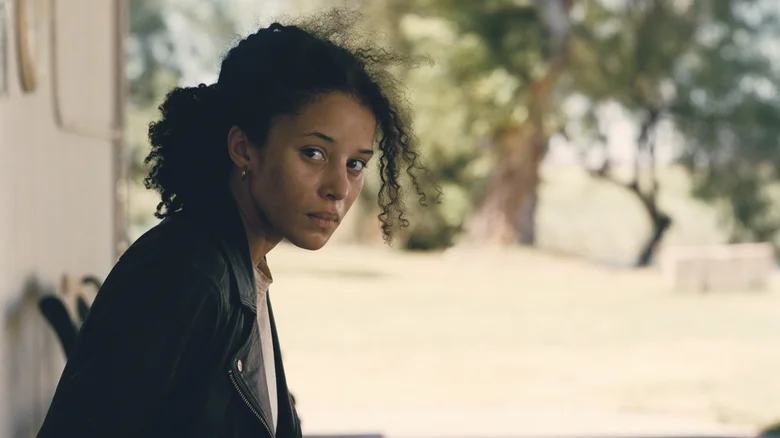
If anyone is a victim in this film, it’s Perfidia’s daughter, who gets caught up in the aftermath of her parent’s botched revolution. “I didn’t ask for this. That’s just how the cards were rolled out for me,” the teen tells her father.
Yet Willa also subverts the “Damsel in Distress” cliché. She knows karate, after all. For a sheltered only child whose father won’t even let her have a cell phone to avoid being traced by government operatives, Willa is remarkably grounded. She’s also smart, defiant and one of the movie’s most purely moral characters.
No matter what battle she is thrown into, Willa emerges as a bruised but badass survivor—never a helpless victim who waits to be saved. Never a light-skinned Jezebel waiting to be kissed. Never a mammy waiting to rescue her oppressor.
Strong Saintly Heroes
This brings us to another positive archetype for Black women that PTA subverts is that of the “Strong Black Woman,” “Hero” or “Saint.” You get all three in films like Within Our Gates, The Color Purple and Hidden Figures.
After Perfidia abandons her family, she admits that she used to “pretend to be strong.” There’s a vulnerability behind this voiceover that struck a chord in me, making me wonder how many times I had tried to live up to an impossible standard of Black excellence, pretending I was without sin.
… no matter how heroic their resistance, strong Black women who fought for liberation and equality were not saints.

Perfidia’s cardinal sin was being too selfish to be a mother. Junglepussy was more about the party than the politics. And while Willa is strong and heroic by the end, she spends most of the movie just surviving.
As much as we may want to cheer on the Black renegades inspired by defiant heroines like the recently departed Assata Shakur, the film won’t let us forget the truth—which is that no matter how heroic their resistance, strong Black women who fought for liberation and equality were not saints. Fighting back sometimes meant facing off against the police, facing murder charges and leaving children behind as you fled to safety in Latin America. The complexity of their personal stories should not make their fights for justice any less laudable.
Deandra, aka Lady Champagne, doesn’t give Regina Hall the screen time she deserves. But it does give the Girls Trip actor one of her most introspective roles to date. Deandra is the film’s most committed and principled outlaw. Down for the cause while deeply caring for Willa, she comes close to giving us the quintessential “strong Black woman” who carries the world on her shoulders and manages to save the day. Nevertheless, she and a monastery of foul-mouthed, marajuana-smoking Black nuns ultimately fail their mission more than once.
Willa is the film’s knight in a Black leather jacket, the heart of every conflict, a noble ode to PTA’s wife and daughters. But given the attitude she takes with the nuns, she is far from a saint. She isn’t overly feminine or sexual or innocent or subservient or nurturing either. Like all of the Black women in this timely film, Willa Ferguson is a real-ass human being.
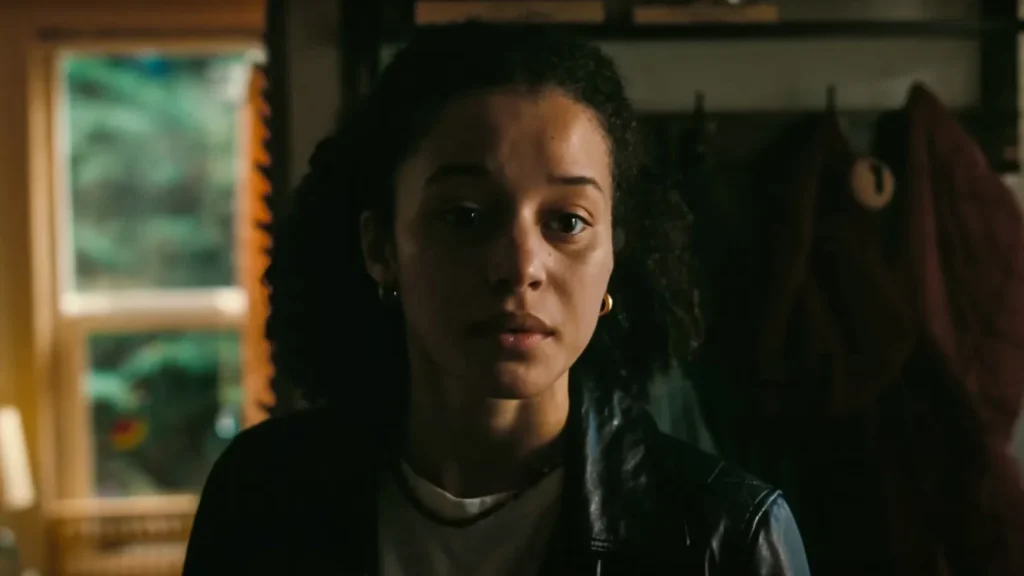
Yep, He Like Black Girls
Paul Thomas Anderson’s One Battle After Another smashes media paradigms created to victimize and vilify women like me for centuries by allowing us to be strong but sensual, faithful while failing, and embattled yet empowered.
Portraying Black women in a multitude of messy, multifaceted ways is not revolutionary. Filmmakers like Spike Lee, F. Gary Gray, Kasi Lemons, Gina Prince Blythewood, Justin Simien, Ava Duvernay, Jordan Peele and Ryan Coogler have been at this for years.
PTA is not the first to subvert one Black femme stereotype after another. He’s just the whitest.
Great Job Alex Chew & the Team @ Ms. Magazine Source link for sharing this story.



